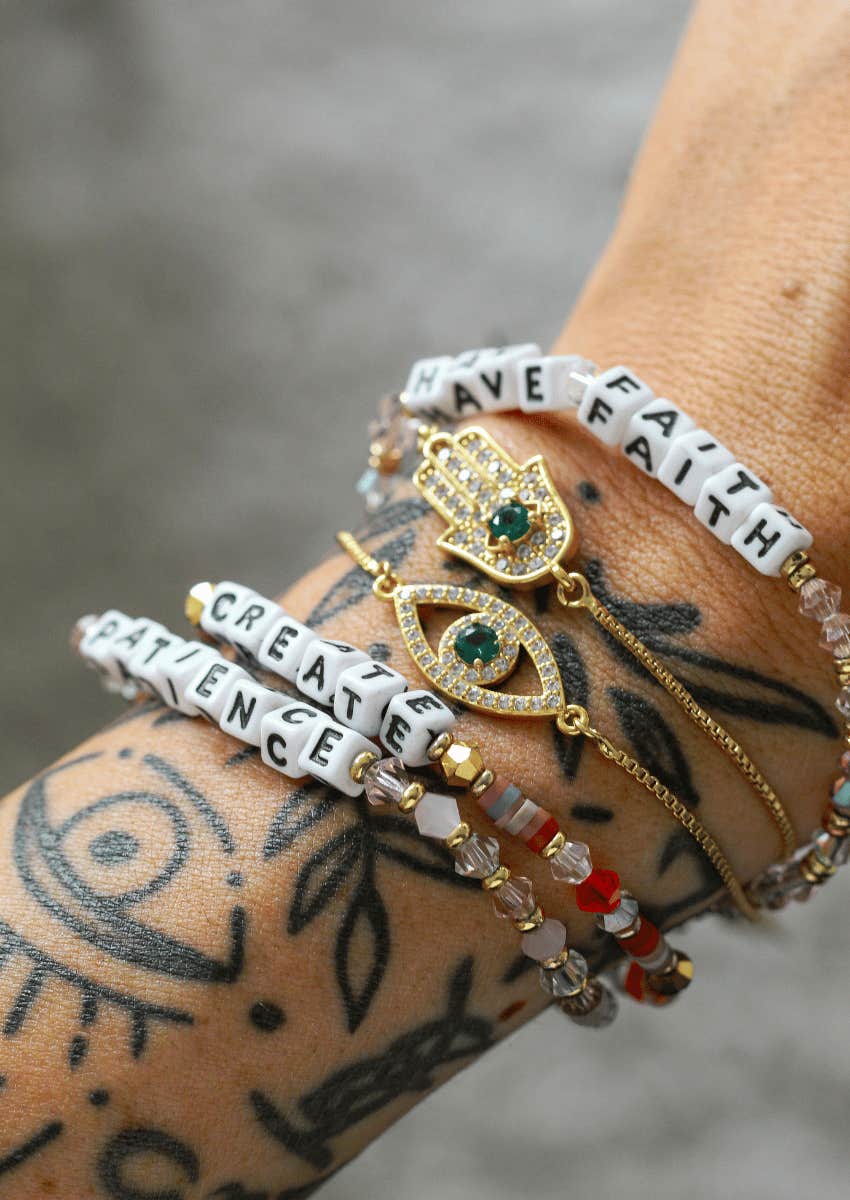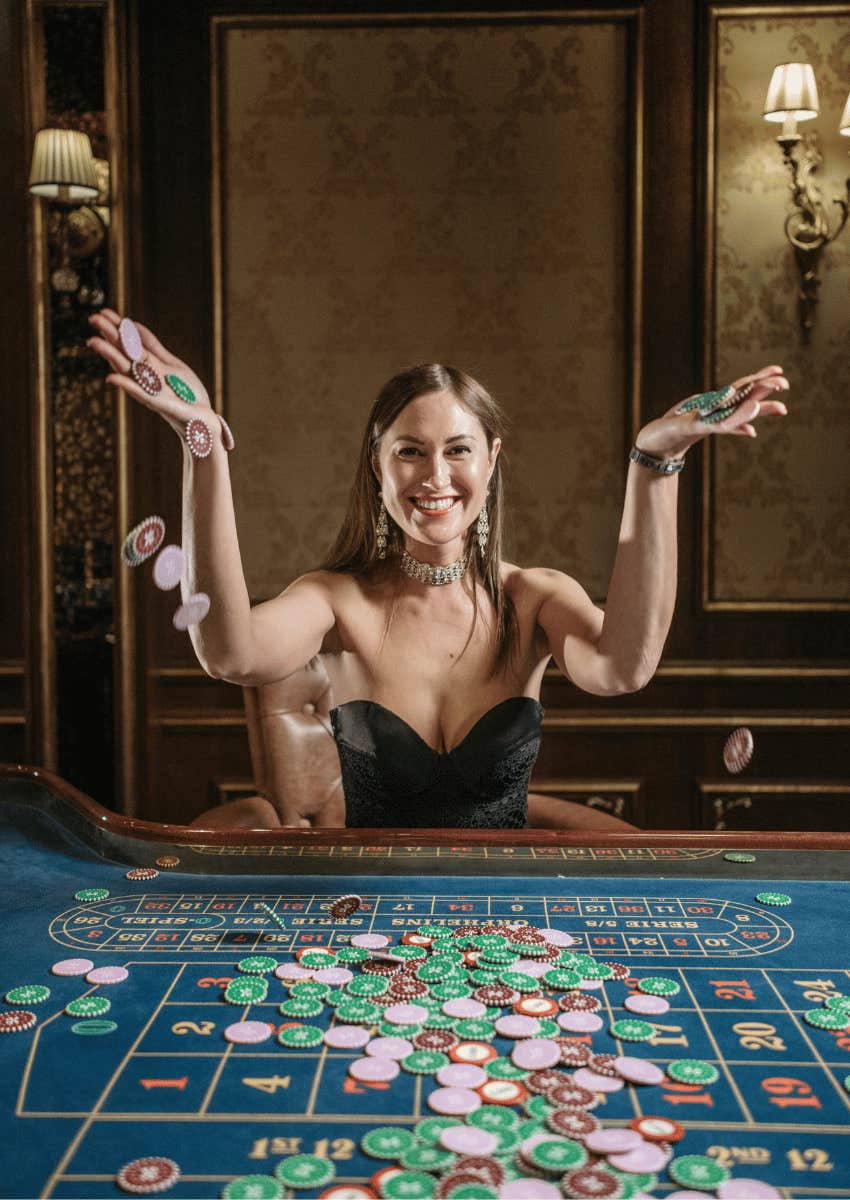Casino Expert Reveals 4 Superstitions That Actually Work (And 4 That Will Haunt You)
The spooky beliefs that lift us and those we can ignore.
 öykü su, MART PRODUCTION | Pexels
öykü su, MART PRODUCTION | Pexels With Halloween here, superstitions are front and center, influencing how we think about luck and fortune. Many of these beliefs may seem irrational, but they still impact our daily lives.
While some can boost our confidence and foster a sense of community, others may lead us to misplaced expectations and unnecessary anxiety. In this piece, we’ll explore the beliefs that lift us and those we can ignore, helping you enjoy the magic of this season and beyond.
Here are 4 superstitions that work:
1. Holiday superstitions
Event-related superstitions add a touch of magic to holidays, from blowing out birthday candles to keeping the groom from seeing the bride. Halloween, with its rich symbolism — like Jack-O'-Lanterns guiding lost souls, spiders representing spirits of the dead, and offerings for wandering souls — stands out as especially meaningful. Such traditions provide a structured way to confront fears and cope with uncertainty, helping to reduce stress. Moreover, their shared nature fosters community and belonging, strengthening social bonds.
2. Lucky rituals
Personal rituals provide grounding and control, helping to manage nerves and enhance focus. This phenomenon, known as superstitious learning, shows how our brains seek patterns between actions and outcomes.
For example, Serena Williams ties her shoes a certain way before matches, Jennifer Aniston steps onto planes with her right foot first, and Quentin Tarantino uses specific pens for writing. These quirky rituals may seem random, but they can help enhance focus and performance.
 Sara Free | Pexels
Sara Free | Pexels
3. Lucky charms
Carrying a lucky charm—whether it’s a coin, a cherished photo, or a special piece of jewelry—can provide a sense of comfort and security. These items function as "transitional objects," linking our inner emotions to the external world, much like a child’s favorite toy provides reassurance in the absence of a parent.
For instance, Victoria Beckham believes in the power of crystals for luck, while Heidi Klum carries baby teeth for good fortune. Though unusual, believing in a charm can trigger the placebo effect, leading to increased confidence and better performance.
4. Dream symbols
Dreams are often seen as messages from the mind, using symbols to express our hidden feelings. For example, water in a dream might represent emotions, while teeth falling out can reflect stress or change. Thinking about these symbols helps people understand their inner feelings, providing insight into their mental state and encouraging personal growth.
Here are 4 superstitions that could trip you up:
1. Black cats
Black cats often get a bad rap, especially around Halloween, when they’re linked to witches in disguise or seen as harbingers of doom. Because of this unfair stereotype, black cats are admitted to shelters and rescues more than any other color, according to the ASPCA. It’s time to flip the script! Welsh folklore suggests that black cats bring good luck to a home and can even predict the weather! So, the next time you spot a black cat, consider it a lucky charm rather than a bad omen.
2. Beginner's luck
“Beginner's luck” refers to the idea that novices experience an unexpected streak of success, sometimes even beating seasoned experts. It sounds charming and can hold during a first attempt at sports or gambling, where newcomers often feel less pressure. The trouble begins when this belief leads to expectations of effortless success right away. Newbies might make impulsive bets or wager more than they can afford, thinking their initial luck will continue. Spoiler alert: practice makes perfect!
 Pavel Danilyuk | Pexels
Pavel Danilyuk | Pexels
3. Bad luck comes in threes
The saying that bad luck comes in threes can turn anyone into a drama queen! When people start counting their misfortunes, it can feel like they're stuck in a never-ending cycle of doom. Instead of enjoying life’s ups and downs, they focus on every little mishap as part of a bad luck trilogy. This mindset can lead to more stress and anxiety, making it hard to appreciate the good stuff when it comes along!
4. Hot streak
It’s a belief that a streak of repeated success will continue just because it’s happening. For example, in tennis, if a player wins three games in a row, fans might think the player is more likely to win the next one, too.
Or when a gambler wins several times, they may start betting more, feeling like their luck will continue. This mindset often leads to chasing wins and losses, creating intense highs and lows. Over time, this cycle can lead to addiction, as gamblers get stuck trying to regain their “winning touch."
Jamie Wall is a Casino Analyst at Gamblizard and a former game developer at NetEnt, with extensive expertise in gaming mechanics and casino operations. He holds a Bachelor’s in Game Theory from the University of Manchester and a Master’s in Casino Game Development from the London School of Economics.
